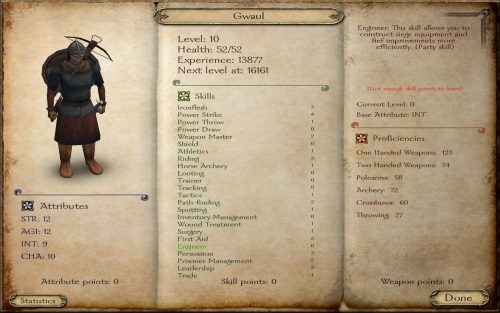Thoughts about numbers in games.
1. Arithmophobia
http://www.electrondance.com/arithmophobia/
<Start Excerpt>
2. Arithmophobia II: Numbers Strike Back
http://www.electrondance.com/arithmophobia-ii-numbers-strike-back/
<Start Except>
3. There is No "+5 Sword" in Lancelot
http://www.gamasutra.com/blogs/JamesCox/20141103/229306/There_is_No_5_Sword_in_Lancelot.php
<Start Excerpt>
1. Arithmophobia
http://www.electrondance.com/arithmophobia/
<Start Excerpt>
Tony Van was the producer in charge of localizing a Japanese RPG called The Story of Thor: Hikari wo Tsugu Mono(Ancient, 1994) for Western audiences, but received a badly translated copy of the story to work from.
In an interview for the The Game Localization Handbook, he explained: “I tried my hardest to figure it out, but was completely baffled. I was under extreme time pressure to get it out for Christmas, so I didn’t have time to contact the Japanese office to track down the original source and get it re-translated. I simply rewrote the story and dialogue using all the plot points I could understand as references and writing that sounded good to me when I didn’t understand the plot points!”
Instead of the action taking place in “the world of Thor”, the English translation located everything in “the land of Oasis” and the game was sold in North America as Beyond Oasis. Someone decided it would sell better in Europe under its original title of The Story of Thor: A Successor of the Light except it left thousands of European Sega Megadrive owners with a mystery: who the bloody Hell is Thor?
I will forever remember it as The Story of Thor because Thor is one of my personal favourites. I’ve played through it three times: the first time was in 1994 as the academic chapter of my life was coming to a close; the second time in 2006 as pure comfort gaming on an emulator; the third time, this year, was a performance for my children, who enjoyed the watching but had little interest in the doing. It can now be bought on Steam for a couple of dollars.
This recent and perhaps final playthrough was illuminating because I was simultaneously playing… dun-dun-duuuunnnn Dark Souls (From Software, 2011). Read more...
<End Excerpt>
2. Arithmophobia II: Numbers Strike Back
http://www.electrondance.com/arithmophobia-ii-numbers-strike-back/
<Start Except>
So I had this week's post Arithmophobia in my head for months as “write some words on how RPG numbers put me off playing” using The Story of Thor and Dark Souls as examples from different sides of the numerical wall. It was meant to be short, more about these individual games, but something happened on the way to the Publish button: I started to question why those numbers were important.
I had no conclusion so instead turned the ending into an invitation to discuss. And a lot of people got in touch, through the comments and on Twitter. This has been great and helped sharpen up my thoughts. Read more...
<End Excerpt>3. There is No "+5 Sword" in Lancelot
http://www.gamasutra.com/blogs/JamesCox/20141103/229306/There_is_No_5_Sword_in_Lancelot.php
<Start Excerpt>
Let’s Chat about Character Stats
A major difference between table top games and digital games are that, while we need to do our own math in analog table top games, digital games can keep track of numbers and do our math. This is nice for streamlining experiences. If I was to sit down and play a D&D session with some friends, we’d have to keep track of:
- Health
- Experience
- Our stats
- Our characters names
- Each other’s character’s names
- All the items in our inventory
- Their stats
- Our money
to name a few. And many of these make sense. If I was to live in a fantasy world, I should know my own name and my friends. And the items in my inventory. But that may be about it. Yet, in a table top game if I was to engage in combat, not only do I need to know (depending on the variant of D&D or table top game) my strength, weapon type (and associated numbers), my initiative, the opponent’s initiative, and the opponent’s strength but also the calculations that include those numbers: how many dice to roll, what type of dice to roll, do I need to roll any dice? This can get very complex very fast. Read more...
<End Excerpt>



Comments
Post a Comment